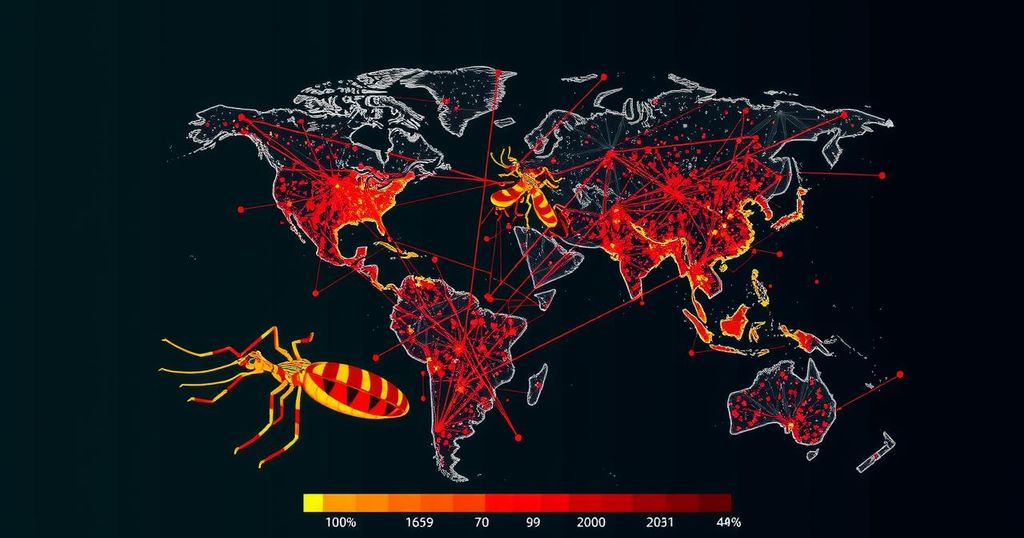Examining the Link Between Flooding and Malaria Risk: A Collaborative Effort in Africa

The Malaria Atlas Project collaborates with Fathom to analyze the impact of climate change-induced flooding on malaria transmission in Africa. Funded by the Bill & Melinda Gates Foundation, this initiative seeks to investigate how flooding affects medical services, mosquito breeding sites, and malaria control efforts. The project aims to establish a foundational knowledge base to guide strategic health interventions in flood-prone areas.
The Malaria Atlas Project, based at the Kids Research Institute in Australia, has engaged the global flood risk intelligence firm Fathom to provide comprehensive flood risk data across Africa. This collaboration aims to analyze the influence of flooding on malaria transmission, particularly as climate change alters flood patterns. Supported by funding from the Bill & Melinda Gates Foundation, this initiative investigates critical areas such as the effect of flooding on transport infrastructure for medical services and the distribution of insecticidal bed nets. The project will also explore how evolving flood risks might affect mosquito breeding sites, thereby aiding malaria control efforts. Fathom’s contribution is deemed crucial in developing strategies to address malaria within flood-prone regions. Professor Peter Gething, one of the project’s leads, emphasized the importance of Fathom’s comprehensive flood risk assessment, which is essential for formulating resilient infrastructure strategies in Africa. Meanwhile, Dr. Andrew Smith from Fathom highlighted the potential impact of this data in shaping informed policy decisions concerning public health in the region. After completing the primary analytics phase, Fathom’s data has laid the groundwork for a new knowledge base aimed at driving proactive actions against malaria related to climate change. Detailed outcomes of this significant initiative can be accessed through the Malaria Atlas Project’s resources. The collaboration represents a significant step towards understanding the interplay between climate adaptation and health, ultimately working towards sustainable solutions to mitigate malaria risks in vulnerable communities across Africa.
The interaction between climate change and public health is increasingly acknowledged, particularly in the context of vector-borne diseases such as malaria. Flooding is associated with increased mosquito breeding habitats, exacerbating malaria transmission risks. The Malaria Atlas Project seeks to understand these dynamics intricately to formulate effective malaria control strategies tailored to the changing climate. This initiative aligns with global health agendas, reinforcing the need for data-driven insights into how climate impacts health outcomes, especially in developing regions.
The partnership between the Malaria Atlas Project and Fathom marks a pivotal advance in addressing the challenges posed by malaria in the face of climate change. By utilizing robust flood risk data, this initiative aims not only to enhance malaria control efforts but also to develop resilient infrastructure strategies crucial for safeguarding public health in Africa. The findings from this project could inform vital decisions, contributing to improved health outcomes in regions susceptible to flooding and malaria transmission.
Original Source: www.africa.com






